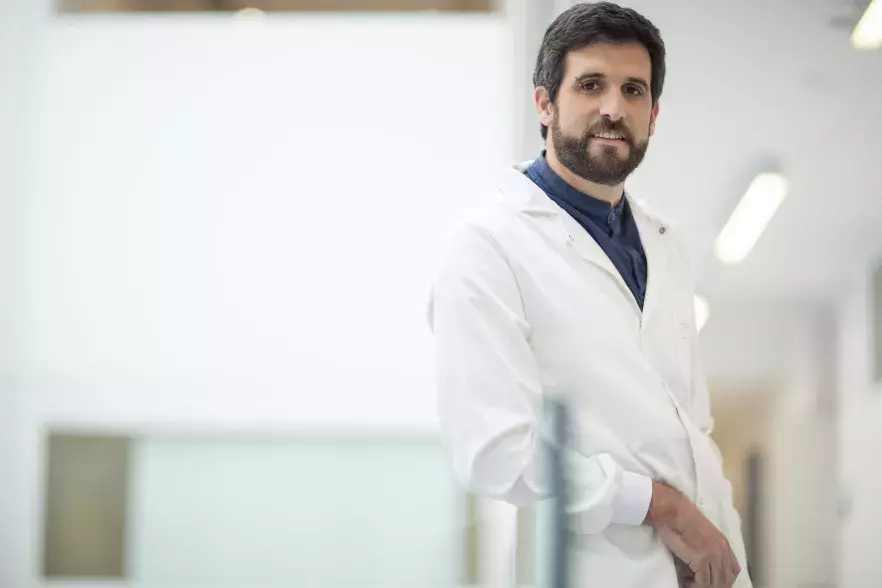Published on 30.03.2020
Immunology, cell biology and artificial intelligence
Creating his ATIP-Avenir Inserm team in June 2017 at Imagine Institute, Mickaël Ménager carried out a childhood dream in a sense: watching Prof. Alain Fischer, first director of Imagine, in a TV program, is when the desire to become a researcher came to him. He carried out these first steps in the team of Geneviève de Saint-Basile - in the unit directed by Alain Fischer - who is interested in patients with immunodeficiencies at Necker-Enfants malades hospital AP-HP. Immunology did not leave him behind: after his PhD, he went to the USA to Dan R. Littman’s laboratory in New York, one of the leading experts on the immune system. “We wanted to understand why dendritic cells, often described as the body’s sentinels, were capable of transmitting lymphocytes when they are resistant to HIV-1 infection” remembered the researcher. To comprehend this mechanism, he turned to a number of genetic tools. The explanation came from modifications of the cytoskeleton of dendritic cells.
Zoom in on the cell
From this transversal experience between immunology, virology and cell biology, he came back certain that he had to tackle the immune system by analyzing the cells, which are the armed wing of it, and their diversity in the most accurate way that he could. “The objective of my team is to explore the complexity of the innate immune response and autoinflammation on the level of the single-cell, explains Mickaël Ménager. From the expression of cells collected in each cell of blood, our idea is to establish a functional map of interactions and connections between the genes.”
The inflammatory response is usually beneficial to our body: it helps it to fight infections, cancers, or some tissue traumas by activating immune system cells. However, in some cases, particularly due to gene mutations, this response can be uncontrolled and excessive causing diseases characterized mainly by high fevers and generalized or targeted inflammations in some organs, with an immune system that turns against the host that it normally protects.
The objective of my team is to explore the complexity of the innate immune response and autoinflammation on the level of the single-cell
At the crossroad of data
By using artificial intelligence or more precisely “machine learning” as specified by Mickaël Ménager, he hopes to be able to bring to light ways that have been unsuspected in these diseases up to now. Instead of searching for alterations in the 30,000 genes contained in a cell, his approach aims to identify networks of interactions between them. Objective: to discover deregulations that could be responsible for some syndromes, of course eventually with the idea of being able to restore them. Because Mickaël Ménager is already thinking of tomorrow and how these new technological tools will be used to better care for patients with genetic diseases among other things. With Nicolas Garcelon and other researchers at Imagine, he wants to use the great potential of Dr Warehouse, a Data science platform developed by Imagine, Necker-Enfants Malades AP-HP and Foch hospital.
“We imagine a patient whose clinical signs suggest a genetic syndrome associated with autoimmune and/or autoinflammatory diseases, describes the researcher. Depending on these criteria, a diagnosis kit based on the analysis of gene interaction networks could be offered to him, led beforehand by our teams at Imagine and so accurately determine the nature of his disease and, if it exists, offer him a treatment.” However the researcher is confident of this medicine based on artificial intelligence, not excluding the carers in any case, on the contrary it could allow them to take better care of the patient.

